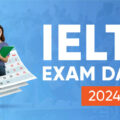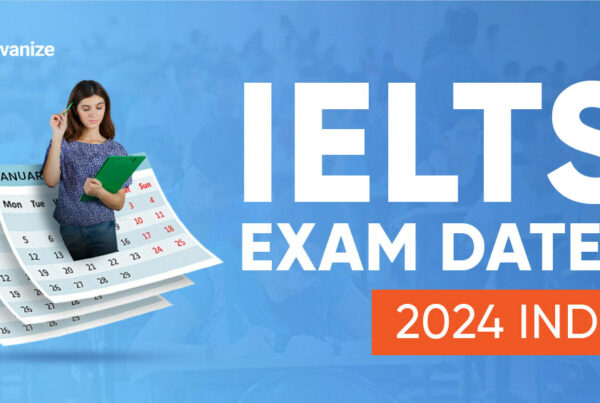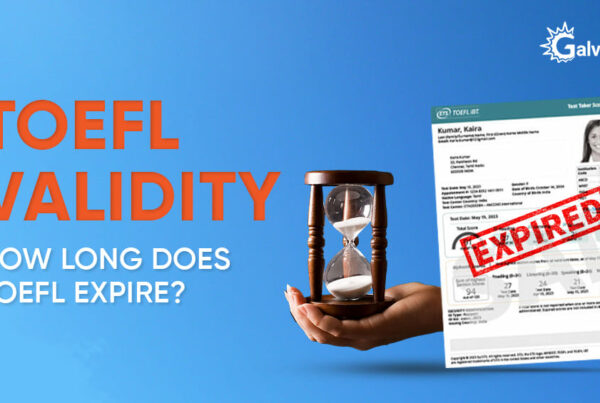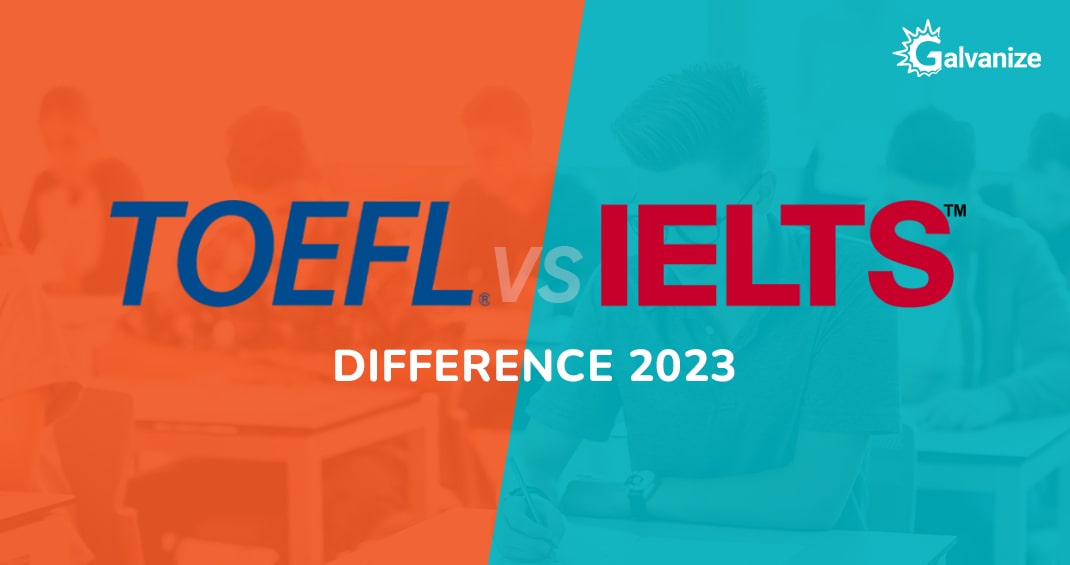
To begin, let’s address your initial decision: you’ve chosen to take either of these exams as a prerequisite for pursuing education abroad or for the purpose of immigration and employment opportunities in foreign countries. With this clarified, it’s advisable to narrow down potential universities. What’s your dream university or destination? Do they have a preference for IELTS or TOEFL? It’s crucial to determine this first and investigate their specific requirements because that’s what truly matters in the end.
However, if you haven’t yet narrowed down your university options and are aiming to keep your options open for various universities, the following information is relevant to you:
For those considering TOEFL scores:
In the United States, TOEFL has long been the favored choice for universities, making it the better option if you’re planning to study or immigrate there. Nonetheless, some institutions do accept IELTS scores, so it’s important to conduct thorough research. Keep in mind that approximately 9000 institutions worldwide recognize TOEFL scores.
What about IELTS?
Similar to TOEFL, IELTS scores are accepted by around 9000 institutions worldwide.
The key distinction lies in the fact that IELTS is the preferred option for programs in the UK, Commonwealth Nations such as Australia, and European universities.
In summary, your decision hinges entirely on your intended study or immigration destination. Let’s now briefly explore the differences between these two assessment options.
Here are the major differences between both the assessments:
- Duration: Post July 26,2023 , TOEFL test has been enhanced with a shorter duration of 1 hour 56 minutes while IELTS test is for a duration of approximately 3 hours.
- Online vs. Paper-Based Format: The TOEFL is primarily administered online, while the IELTS offers both online and paper-based options. If you have a preference for handwriting over typing, you can select the version that suits your preference.
- Multiple Choice vs. Short Answer Questions: The TOEFL relies heavily on multiple-choice questions, whereas the IELTS encourages candidates to provide concise written responses to the questions posed. IELTS places a greater emphasis on evaluating your critical thinking skills.
- Speaking Assessment: In the TOEFL, you respond to provided questions or prompts in a recorded format, with no human interaction during the process. In contrast, the IELTS involves real human assessors who engage in a conversation with you, actively listening to your responses. Your choice here depends on whether you prefer interacting with another person and find it more engaging, or if you find it more intimidating, in which case the TOEFL might be a better fit. It’s a matter of your communication style and comfort.
- Reading Section: The IELTS incorporates a variety of text sources, including academic readings, magazines, and online publications. In contrast, the TOEFL exclusively employs academic texts. This can make the TOEFL’s reading section more challenging, as it draws from a narrower set of sources.
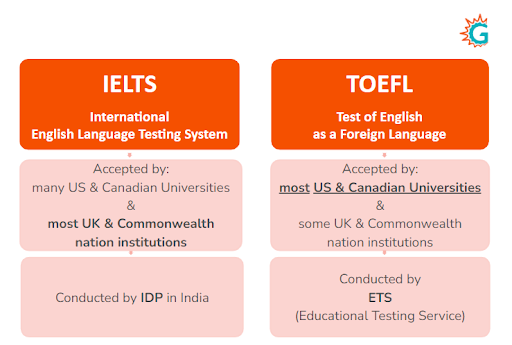
Here is the comparison of the different sections of IELTS and TOEFL:
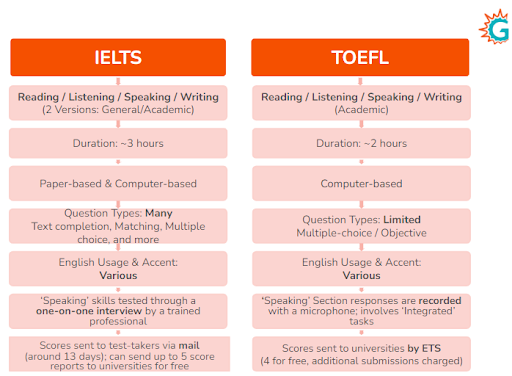
A brief summary of the TOEFL vs IELTS Exam fee , score reporting etc.
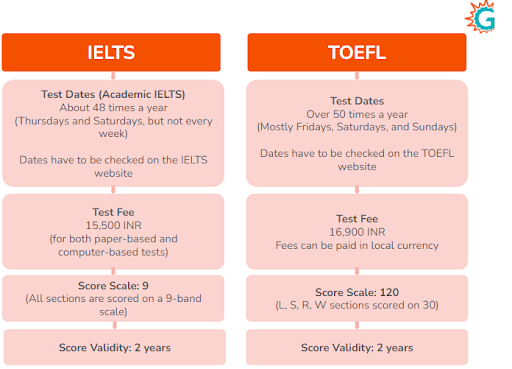
In conclusion, the selection between IELTS and TOEFL should align with your specific objectives and preferences, as well as the requirements of your desired country or institution.
Consider factors such as your comfort with the online format or paper-based testing, your proficiency in multiple-choice versus short answer questions, and your preference for human interaction during the speaking section.
Additionally, the choice should reflect the reading materials you are most comfortable with, as IELTS draws from diverse text sources, while TOEFL primarily relies on academic texts. Ultimately, your decision should be a thoughtful one, catering to your individual communication style, thinking abilities, and the unique demands of your academic or professional journey.





